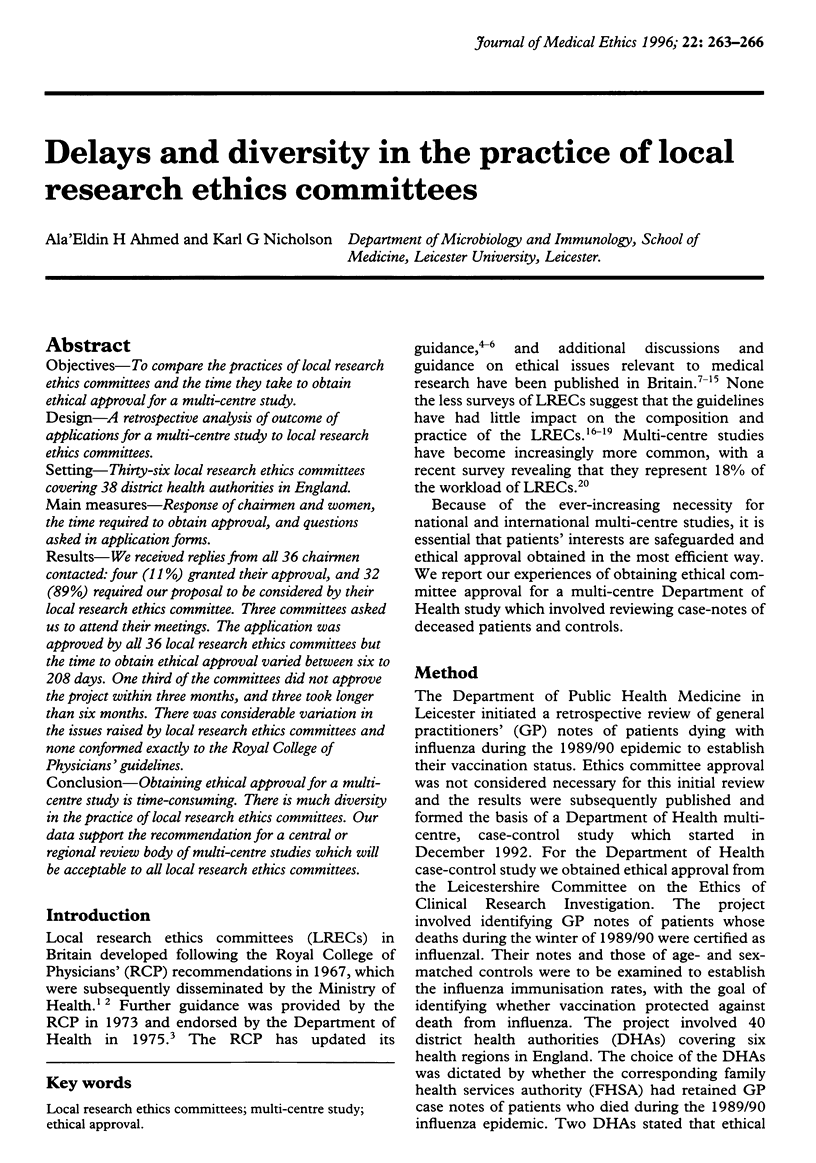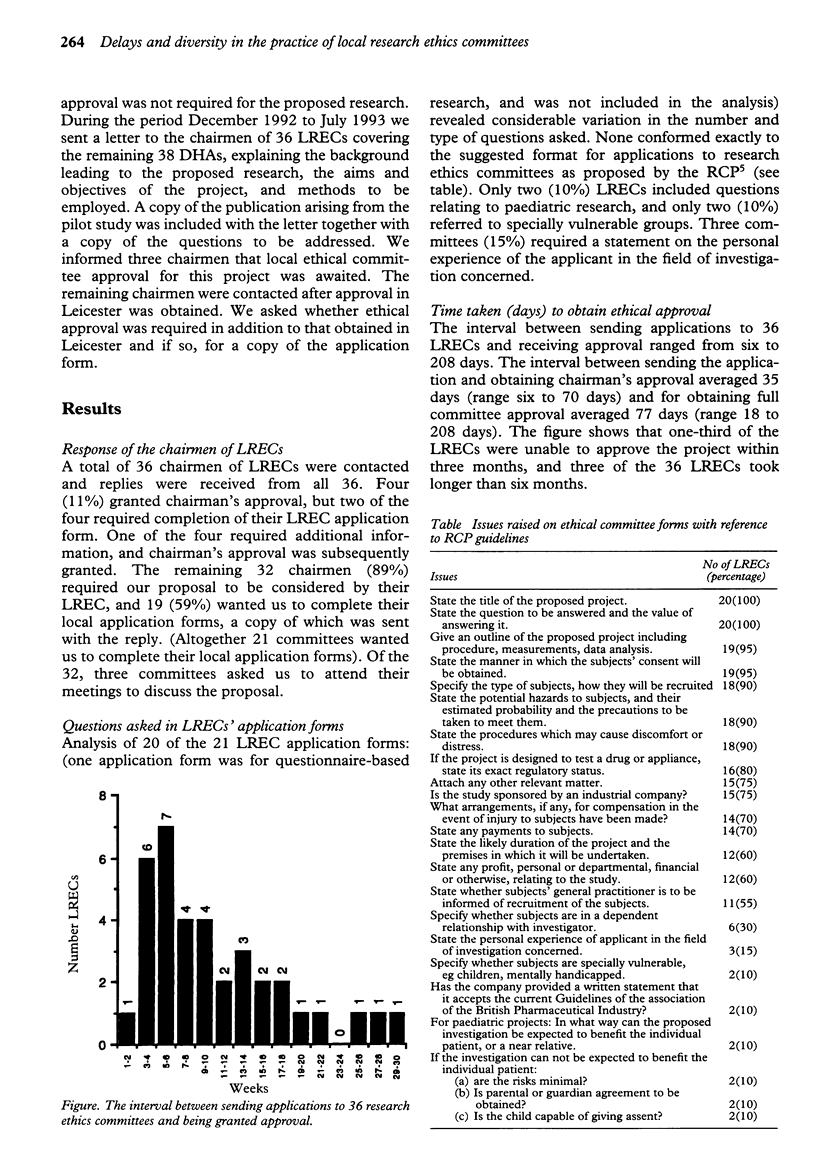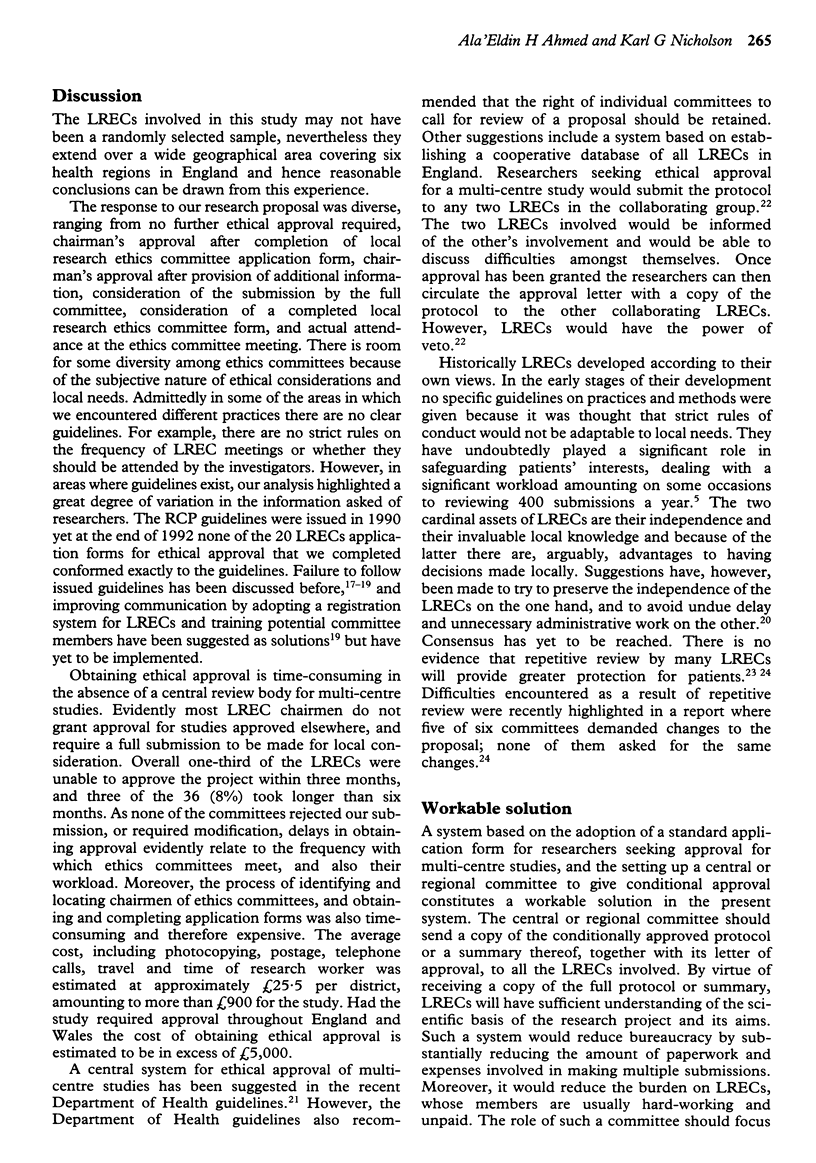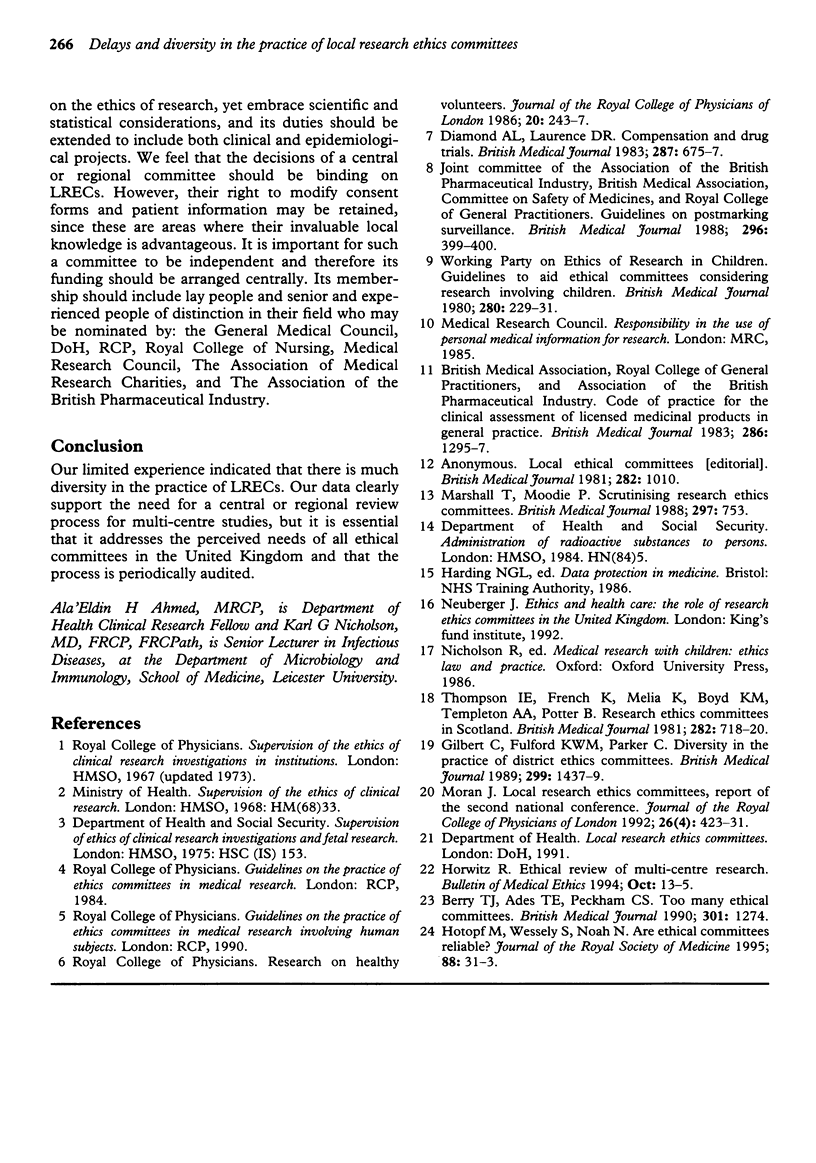Abstract
OBJECTIVES: To compare the practices of local research ethics committees and the time they take to obtain ethical approval for a multi-centre study. DESIGN: A retrospective analysis of outcome of applications for a multi-centre study to local research ethics committees. SETTING: Thirty-six local research ethics committees covering 38 district health authorities in England. MAIN MEASURES: Response of chairmen and women, the time required to obtain approval, and questions asked in application forms. RESULTS: We received replies from all 36 chairmen contacted: four (11%) granted their approval, and 32 (89%) required our proposal to be considered by their local research ethics committee. Three committees asked us to attend their meetings. The application was approved by all 36 local research ethics committees but the time to obtain ethical approval varied between six to 208 days. One third of the committees did not approve the project within three months, and three took longer than six months. There was considerable variation in the issues raised by local research ethics committees and none conformed exactly to the Royal College of Physicians' guidelines. CONCLUSION: Obtaining ethical approval for a multi-centre study is time-consuming. There is much diversity in the practice of local research ethics committees. Our data support the recommendation for a central or regional review body of multi-centre studies which will be acceptable to all local research ethics committees.
Full text
PDF



Selected References
These references are in PubMed. This may not be the complete list of references from this article.
- Berry T. J., Ades T. E., Peckham C. S. Too many ethical committees. BMJ. 1990 Dec 1;301(6763):1274–1274. doi: 10.1136/bmj.301.6763.1274. [DOI] [PMC free article] [PubMed] [Google Scholar]
- Diamond A. L., Laurence D. R. Compensation and drug trials. Br Med J (Clin Res Ed) 1983 Sep 3;287(6393):675–677. doi: 10.1136/bmj.287.6393.675. [DOI] [PMC free article] [PubMed] [Google Scholar]
- Gilbert C., Fulford K. W., Parker C. Diversity in the practice of district ethics committees. BMJ. 1989 Dec 9;299(6713):1437–1439. doi: 10.1136/bmj.299.6713.1437. [DOI] [PMC free article] [PubMed] [Google Scholar]
- Hotopf M., Wessely S., Noah N. Are ethical committees reliable? J R Soc Med. 1995 Jan;88(1):31–33. [PMC free article] [PubMed] [Google Scholar]
- Marshall Tim, Moodie Peter. Scrutinising research ethics committees. BMJ. 1988 Sep 24;297(6651):753–753. [PMC free article] [PubMed] [Google Scholar]
- Moran J. Local research ethics committees. Report of the 2nd National Conference. J R Coll Physicians Lond. 1992 Oct;26(4):423–431. [PMC free article] [PubMed] [Google Scholar]
- Timmis A. D., Fowler M. B., Chamberlain D. A. Comparison of haemodynamic responses to dopamine and salbutamol in severe cardiogenic shock complicating acute myocardial infarction. Br Med J (Clin Res Ed) 1981 Jan 3;282(6257):7–9. doi: 10.1136/bmj.282.6257.7. [DOI] [PMC free article] [PubMed] [Google Scholar]


